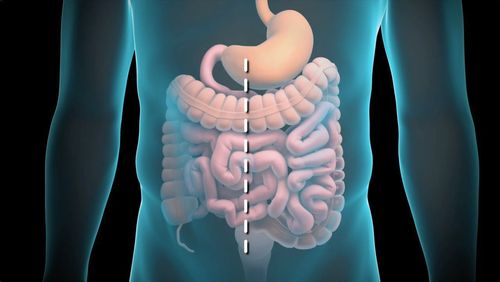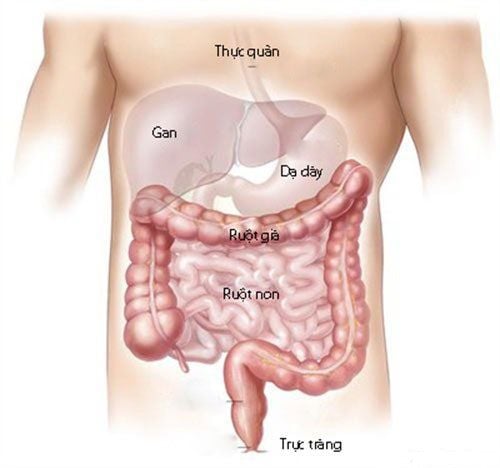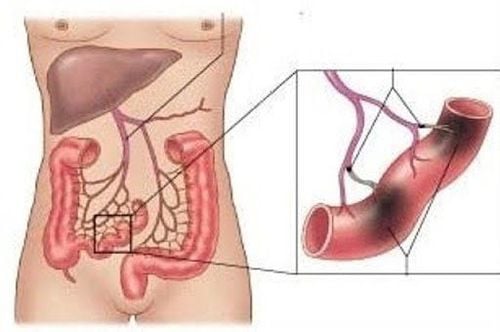This is an automatically translated article.
The article is professionally consulted by Master, Doctor Nguyen Thai Binh - Gastroenterologist - Department of General Surgery - Vinmec Ha Long International General Hospital.In case the patient has a complete intestinal obstruction, does not respond to other treatment options or has complications after treatment, the doctor will recommend surgery for intestinal obstruction. Depending on the type of surgery and the patient's health condition, the recovery time will vary.
1. Learn about bowel obstruction
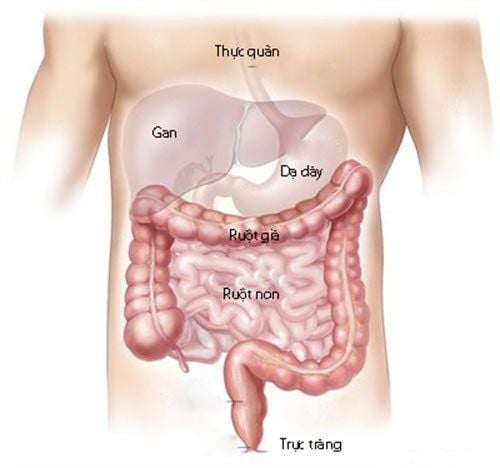
Although patients with intestinal obstruction have many causes, intestinal obstruction after laparotomy is the most common cause.
In the early stages of intestinal obstruction, the patient often has no obvious symptoms or is subjective to the early manifestations of the disease, so he continues to eat and causes the food to be stuck to continue to push the blockage. If not treated promptly, intestinal obstruction can lead to intestinal perforation and allow the contents of the intestine (bacteria, food residue) to spread to the body cavities and lead to death.
Not only life-threatening, patients with intestinal obstruction are also at risk of experiencing two of the most serious complications of intestinal obstruction, which are necrosis and peritonitis.
2. Common symptoms of bowel obstruction
When intestinal obstruction, regardless of the cause, the patient also has the following specific symptoms:Abdominal pain, bloating Anorexia, nausea, vomiting fecal matter Unable to defecate, defecation convenient.
3. Does bowel obstruction require surgery?
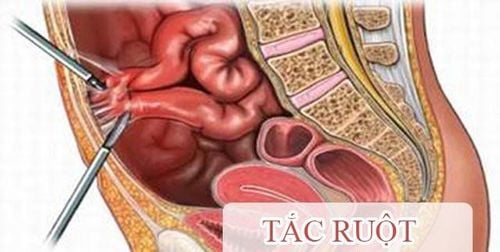
So does bowel obstruction require surgery? In addition to conventional treatment, in the following cases, the doctor will appoint an intestinal obstruction surgery:
The patient has a complete intestinal obstruction and prevents blood circulation to the affected area. In this case, if the bowel obstruction is not operated, it can cause the intestine to die and affect the patient's life. Patients with intestinal obstruction appear complications, if not, the bowel obstruction will cause high pressure on the intestines, rupture of intestinal contents along with bacteria will leak into the abdomen, this complication can be life-threatening. Patients with small bowel obstruction are indicated for emergency surgery.
4. Is bowel obstruction surgery dangerous?
In most cases, patients with intestinal obstruction are indicated for surgery to remove the obstruction and damaged bowel segments. If the patient has complete intestinal obstruction, but the emergency treatment is delayed for about 3-4 hours, it will cause an imbalance between the endothelium and the intestinal epithelium, causing fluid infiltration into the abdomen, causing dehydration shock, leading to dehydration. enteric necrosis and can lead to rapid death.In case the patient has intestinal obstruction due to torsion, it is necessary to have both surgery for intestinal obstruction and resuscitation, because if the bowel loop is delayed, there will be anemia and very quickly lead to necrosis, extremely dangerous to life.
5. Intestinal obstruction surgery
During surgery, the patient will be under general anesthesia. The surgeon will make an incision in the abdomen to expose the intestines (in some cases laparoscopic and smaller incisions), and then find the blocked area in the intestine and remove it.Patients with intestinal obstruction may have the damaged bowel removed if detected. This is a procedure that removes the damaged part of the intestine and reconnects the healthy ends. In cases where the healthy ends of the intestines cannot be reconnected after removing the damaged parts because of the intestinal obstruction, the doctor will bring one end of the intestine to the opening of the abdominal wall with a colostomy or open procedure. ileostomy.
Patients after bowel obstruction surgery will recover gradually depending on their health condition and the doctor's expertise. However, there are also some cases of complications after surgery such as:
Scar tissue forms in the abdomen, which can sometimes cause intestinal obstruction Problems with colostomy or colostomy procedures Temporary paralysis of the intestines Side effects of anesthetics Damage to nearby organs Opens the stitches of the intestines, which can cause life-threatening problems. After performing bowel obstruction surgery, the patient will stay in the hospital for a while for the doctor to take care of and check for complications. Recovery time after traditional surgery will be longer than laparoscopic surgery.
Master, Doctor Nguyen Thai Binh has more than 20 years of experience working in abdominal surgery. He is a former resident of Sainte Marguerite and Nord Hospitals (Marseille, France).
Please dial HOTLINE for more information or register for an appointment HERE. Download MyVinmec app to make appointments faster and to manage your bookings easily.





